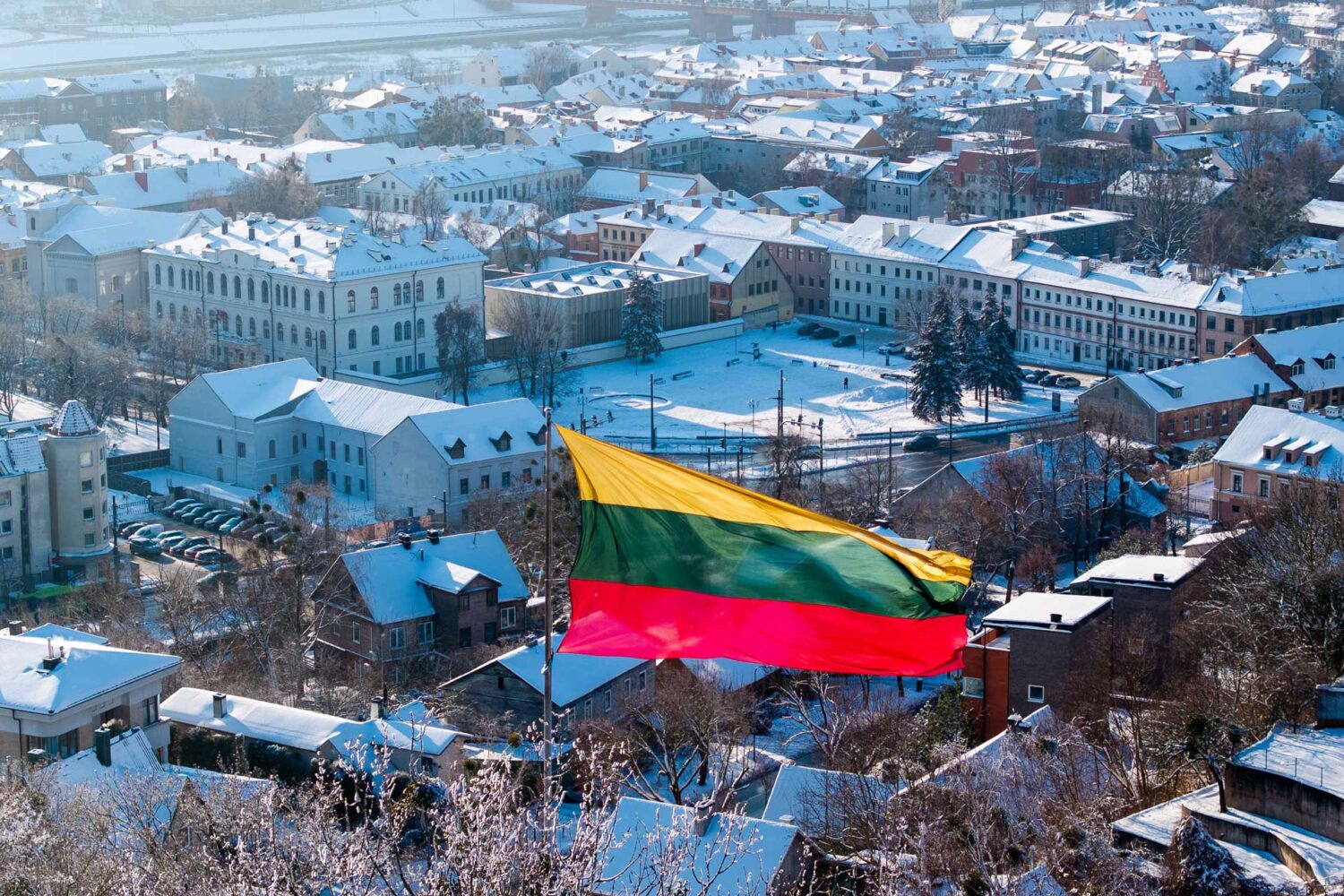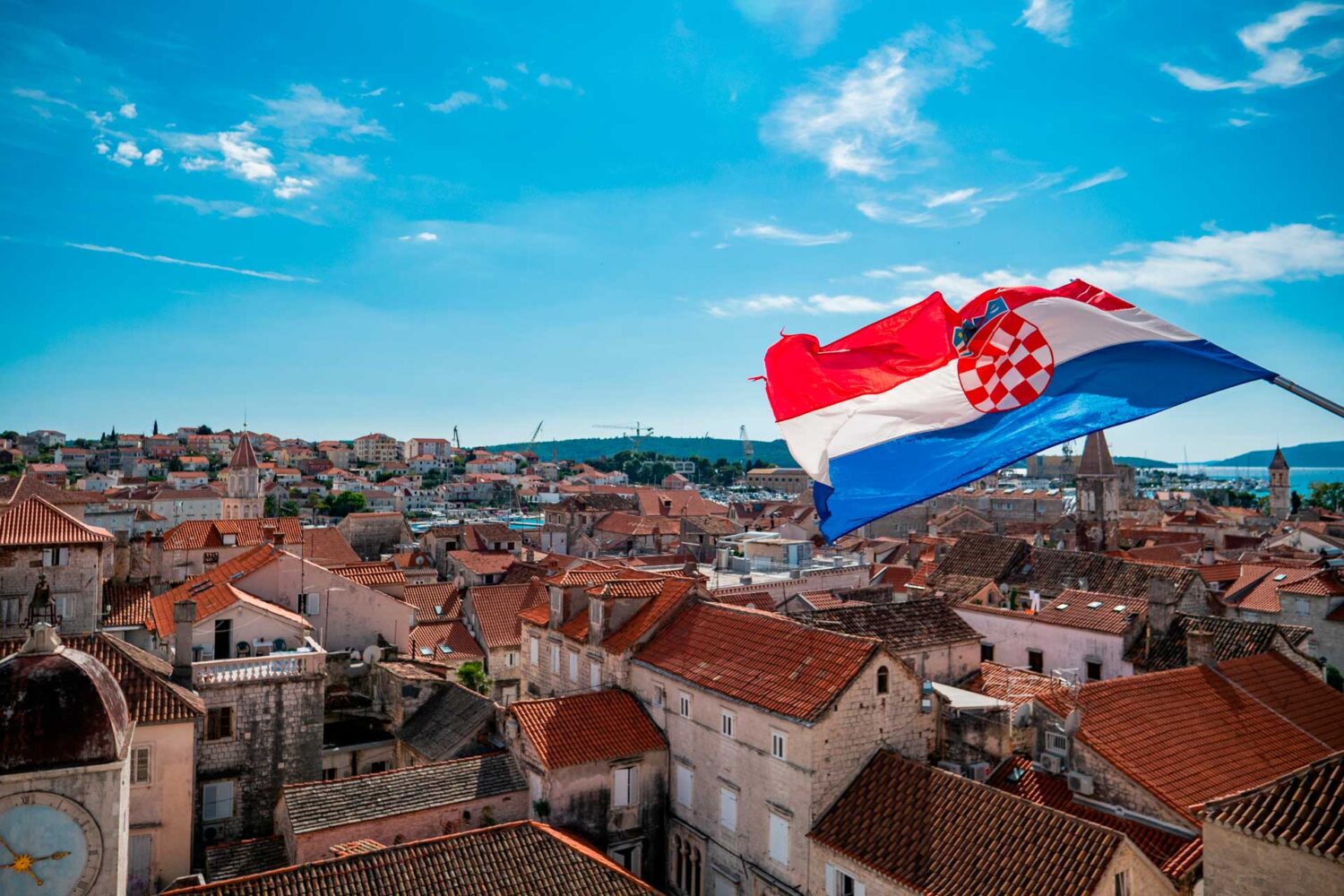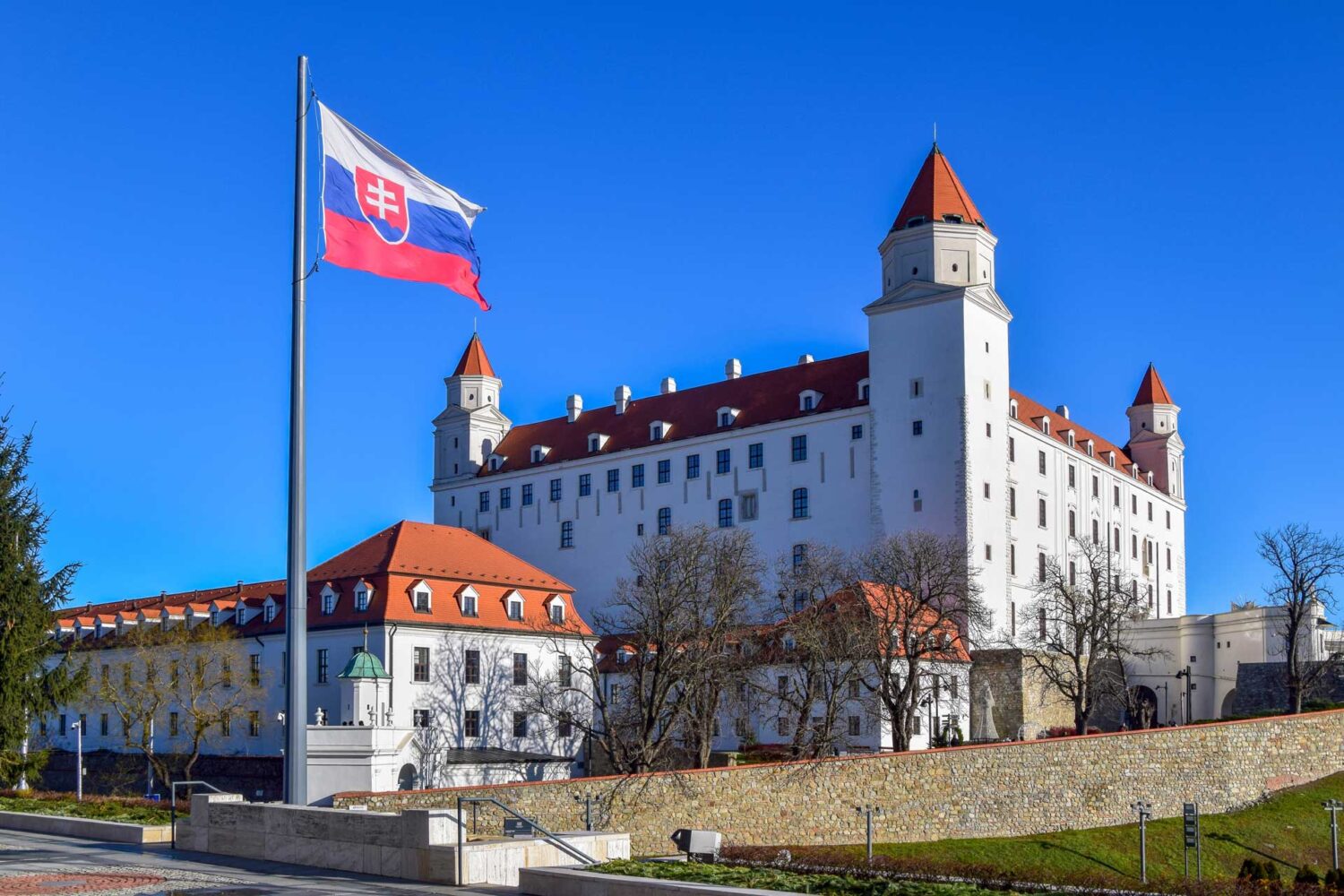Italian citizenship is an official status that confirms a person’s belonging to the Republic of Italy and gives him/her a full range of rights and obligations. Many immigrants aspire to become an Italian citizen, as the Italian passport opens the way to live and work in all EU countries, visa-free travel and other advantages.
Italian citizenship can be obtained on different grounds: by descent (Italian roots), through marriage, by naturalization after living in the country, for investment (indirectly – through investment and residence permit) or repatriation – restoration of status. Each basis has its own requirements and deadlines established by Law No. 91/1992 “On Citizenship”. Further we will consider the advantages of the Italian passport and analyze in detail how to obtain Italian citizenship step by step for each of the main ways, how long it takes and how much it costs.
With the support of Mycitizenagency’s migration lawyers, the citizenship process is much easier. Already at the initial stage, it is worth analyzing your grounds and getting advice from a specialist in order to choose the best path to an EU passport.
Advantages of Italian citizenship
The holder of an Italian passport receives a number of significant benefits. The following are the key benefits of an Italian passport:
- Freedom of movement in the EU.
Italian citizenship automatically makes you a citizen of the European Union. It entitles you to reside permanently in any of the 27 EU countries (as well as Norway, Switzerland, Iceland and Liechtenstein) without any visa or time limit. You will be able to work, start a business or study in any country in united Europe without special authorization or bureaucracy. - Visa-free travel around the world.
An Italian passport allows you to visit 180+ countries without visas, including all Schengen states, the UK, Japan, Canada, Australia and the US (with electronic authorization). In terms of visa-free destinations, the Italian passport ranks in the top 5 worldwide. - Access to education and medicine.
Italian citizens can receive free or discounted education in public schools and universities on an equal basis with other Italians. Primary and secondary education is compulsory and free for children up to 16 years old. They also have access to quality medicine: emergency care is free for all, and with Italian citizenship you receive European Health Insurance (EHIC), valid in all EU countries. - Social and political rights.
Citizenship status entitles you to enjoy all social support of the state – pensions, unemployment benefits, payments for children, etc. You will be able to participate in political life: vote in elections and referendums, as well as run for public office. Only citizens have the right to hold a number of public service positions (officials, police officers, military personnel, etc.). - Transfer of citizenship by inheritance.
Children born into your family automatically become Italian citizens if at least one of the parents is Italian. Your descendants retain Italian citizenship even if they are born outside the country (only consular registration of birth is required). Thus, by obtaining an Italian passport, you ensure that your children and grandchildren are entitled to all of the above benefits.
Note! There are incentives for Italian tax residents – for example, a flat tax of 5% on small businesses with income up to €85,000 per year. There is also a special Flat Tax regime for new residents. These advantages make Italian citizenship attractive not only in terms of personal freedom, but also financially.
Check your chances for a simplified passport application in Italy
Fill out the form below and an immigration specialist will provide you with a free consultation
Ways of obtaining Italian citizenship
Before proceeding to the procedures, it is important to determine on what basis you can claim Italian citizenship. The law provides several ways to obtain an Italian passport in 2026, and each requires a different approach. Let’s look at the main options:
Italian citizenship by descent (jus sanguinis)
This method is suitable for those who have Italian ancestors. Citizenship by descent (through Italian ancestors) is based on the principle of jus sanguinis – the right of blood. Simply put, if at least one of your parents is an Italian citizen, you yourself have the right to Italian citizenship by birth. The place of your birth is not important – it is the nationality of your parents that matters. For example, a child of an Italian and a foreigner, born in any country, automatically becomes an Italian citizen. In such cases, the only thing left to do is to issue a birth certificate and register the child at a consulate or commune to obtain a passport.
If the Italian ancestor is in a more distant generation (grandmother, grandfather, great-grandmother, great-grandfather), there is also a possibility to get an Italian passport through the family tree. Italy is one of the few countries where citizenship is inherited without generational restrictions, but with a number of conditions. The main requirement is that you must have a direct ancestor in an unbroken chain who was an Italian citizen, and neither he nor his descendants in this line have renounced Italian citizenship. That is, if someone in the chain officially lost Italian citizenship, the transfer to the next descendants is terminated.
⚠️Important about 1948! Historically, prior to January 1, 1948, Italian citizenship was inherited only through the male line. Therefore, if your direct Italian ancestor is a woman who gave birth to a child before 1948, the standard administrative procedure for recognizing citizenship does not apply. Descendants of such Italian women can only regain citizenship through the courts (special judicial procedure for 1948 Rule cases). This nuance should be taken into account when collecting your family tree.
Italian citizenship through marriage (jure matrimonii)
Marriage to an Italian citizen gives the foreigner the right to apply for citizenship in a simplified procedure. Obtaining Italian citizenship by marriage is regulated by Article 5 of Law No. 91/1992 and requires the fulfillment of several conditions. Firstly, the marriage must be officially registered and must be maintained at the time of application and until the citizenship is granted (divorce or de facto separation interrupts the process). Secondly, a certain period of cohabitation with the spouse must have elapsed before the application is submitted:
- If the couple resides in Italy permanently, it is possible to apply for citizenship 2 years after the marriage. These two years must be spent living together in Italy legally (the foreigner must have a residence permit for family reasons).
- If the spouses live outside Italy, you can apply for citizenship 3 years after the marriage registration. That is, the waiting period increases if the family lives abroad.
- If the couple has a child (or the child was adopted), the specified timeframe is reduced by half. If there is a common child, it is possible to apply for citizenship after 1 year of joint residence in Italy or 1.5 years of residence abroad.
In addition to the length of marriage, the applicant must also meet the general criteria for naturalization: no criminal record and Italian language proficiency of at least B1 level. The language requirement was introduced in 2018 and applies also to cases of citizenship through marriage. The application must be accompanied by a certificate proving language proficiency (for example, PLIDA B1, CELI 2 or other accredited exam) or a diploma of education obtained in an Italian university.
Italian citizenship by naturalization (through residence)
Naturalization is the most common way for foreigners without Italian relatives or marriage ties. It is possible to obtain Italian citizenship by naturalization if you live in the country legally for a long time, integrate into society and meet all the requirements.
Italy is known for one of the longest naturalization periods in Europe: as a rule, at least 10 years of continuous residence is required for citizens of non-EU countries. This period is counted from the date of the initial residence permit (Permesso di soggiorno) and requires maintaining residency status for all years. If you are a citizen of another EU country, the law is loyal – 4 years of residence in Italy is enough to be eligible to apply. Persons who have been granted refugee status in Italy or have no citizenship can naturalize after 5 years of residence.
In addition to the period of residence, there are other requirements for the applicant for naturalization: legal status all years, no criminal record and compliance with the law, sufficient income and housing, knowledge of the Italian language, integration into society.
If all the conditions are met, you prepare the application package and send the application. The list of documents is usually as follows:
- Passport and residence permit card (copies + originals).
- Birth certificate with apostille and translation into Italian. If the surname has been changed – documents about it.
- Criminal record certificates from all relevant countries.
- Codice fiscale – Italian tax code (identifier).
- Tessera sanitaria – Italian medical policy (national insurance card).
- Receipt for payment of the €250 state duty and €16 stamp duty.
- Certificate of knowledge of the Italian language (level B1 and above).
- Income documents: certificate of employment, Unico model or declaration of income for the last 3 years, bank account statement, etc.
- Document proving continuous residence at the place of registration (certificate of residency – certificato di residenza).
- 4 passport-size photographs and a stamped envelope for mailing (required when submitting originals at the prefecture).
All foreign documents must be apostilled and translated into Italian by a certified translator. The application is now mostly done online, through the portal of the Ministry of the Interior (Dipartimento per le Libertà Civili e l’Immigrazione). After filling in the electronic application form and uploading the scans, the system will set a date for you to bring the original documents to the prefecture. At the reception they will check the originals, take your fingerprints and confirm that your case is complete.
The next thing to do is to wait. The time limit for naturalization processing by law is 24 months, with the right to extend up to 36 months. However, as of 2018, the maximum is actually set to 48 months (4 years) waiting time. The application undergoes checks at the Ministry of Interior, police, inquiries to your countries of residence, etc., so the process is not fast. You can track the status of the case by number on the same MIA website or through prefectural notifications. When a decision is made, you will be notified in writing.
If your citizenship is approved, the next mandatory stage is the swearing-in (Giuramento). You will be notified of the date on which you must go to the municipality where you live and swear an oath of allegiance to the Republic of Italy and its laws. You have 6 months from the date of the naturalization order to take the oath. Once the oath is taken, you officially become a citizen (the corresponding certificate-decreto is issued). Then you can apply for an Italian passport – a foreign passport and an internal ID-card.
The naturalization procedure requires time and patience. However, there are programs that allow you to obtain a second EU citizenship much faster. If your priority is an EU passport in a short period of time, you should consider simplified repatriation programs (for example, in Slovenia) or at least get professional advice to evaluate all available options. An experienced migration lawyer at Mycitizenagency can help you find the best solution for your situation.
Find out how to obtain citizenship faster
Italian citizenship for investment
Many people wonder whether it is possible to «buy Italian citizenship» with money. There is no direct program in Italy. That is, it is impossible to simply make an investment and immediately receive an Italian passport. Instead, Italy offers an investment visa (residence permit for investment) – the so-called «golden visa», which gives a residence permit, and after 10 years of residence with it can be naturalized in the general order. In essence, the investor goes through the same path of naturalization, just the first steps – it is an easier entry and residence permit in exchange for investment.
The main options for an investment residence permit in Italy are as follows: €250,000 to a startup, €500,000 to an operating company, €1,000,000 to a charitable contribution, €2,000,000 to government bonds.
The investor must be over 18 years old, have legal means and no criminal record. The visa application is submitted online and approval is given by a special committee. After preliminary approval, the applicant enters Italy and within 8 days applies for an investor’s residence permit (Permesso di soggiorno per investitori). The investor’s residence permit is issued for 2 years, then can be extended for another 3 years and beyond. If the investment is maintained and all conditions are met, after 5 years, the investor can receive a permanent residence, and after living in the sum of 10 years – to apply for citizenship.
Thus, citizenship for investment in Italy is a long-term goal. Formally, the passport of Italy can be obtained only by fulfilling the condition of living for 10 years. The invested funds themselves do not replace the requirement of naturalization, but they help you to legally settle in the country and do business there. It should be noted that an investor living in Italy must also learn the language and integrate like other applicants.
Italian citizenship by repatriation (restoration)
Repatriation, in the context of citizenship, refers to the restoration of status for persons who had a past connection with the Italian State. This can include several situations:
- Restoration of citizenship by former citizens. If a person was previously an Italian citizen, but lost his/her citizenship (for example, by emigrating and obtaining a new citizenship before 1992, when Italy did not recognize dual citizenship), he/she has the right to reacquire Italian citizenship. As a rule, to do this, one must move to Italy and legally live there for at least 1 year, after which he/she must submit a declaration for restoration of citizenship. Alternatively, if the former citizen enters the Italian civil service abroad, citizenship is automatically restored. The restoration process is carried out through the consulate or communes, depending on the situation, with the submission of documents confirming the former status.
- Descendants of former Italian territories. The law provides a special procedure for people who lived in territories that were formerly part of Italy, but were transferred to other countries. For example, residents of the regions of Istria, Dalmatia, etc., which were ceded to Yugoslavia under the peace treaty of 1947, as well as their descendants, can obtain Italian citizenship in a simplified procedure. It is necessary to prove the fact of birth or residence of ancestors in these territories before their transfer, knowledge of Italian language and connection with Italian culture. Application for citizenship by repatriation is made through consular offices or municipalities in Italy.
- Service to the State of Italy. Foreigners who were not previously citizens but who have worked in the Italian public service for 5 years are eligible for citizenship regardless of the length of residence. It is noteworthy that this applies even if the service took place outside Italy. We are talking about the positions of diplomats, employees of Italian public institutions, military, police, etc. This route is rare and requires direct employment by an Italian public authority. After 5 years of continuous service, it is possible to apply for citizenship on the basis of merit to the country.
Each of the repatriation scenarios is different and needs to be documented. In the case of former citizens, it often comes down to indicators of integration (living in the country for a year, showing ties). For descendants from lost territories – collect archival references, conduct a language interview. For employees – provide contracts and characteristics. The advantage is that the standard 10-year residency period does not apply or is shortened because the connection to the state is already in place.
If you think you fall into one of the repatriation categories, it is best to seek legal advice. Mycitizenagency specialists will help you understand the legal nuances and prepare a proof base.
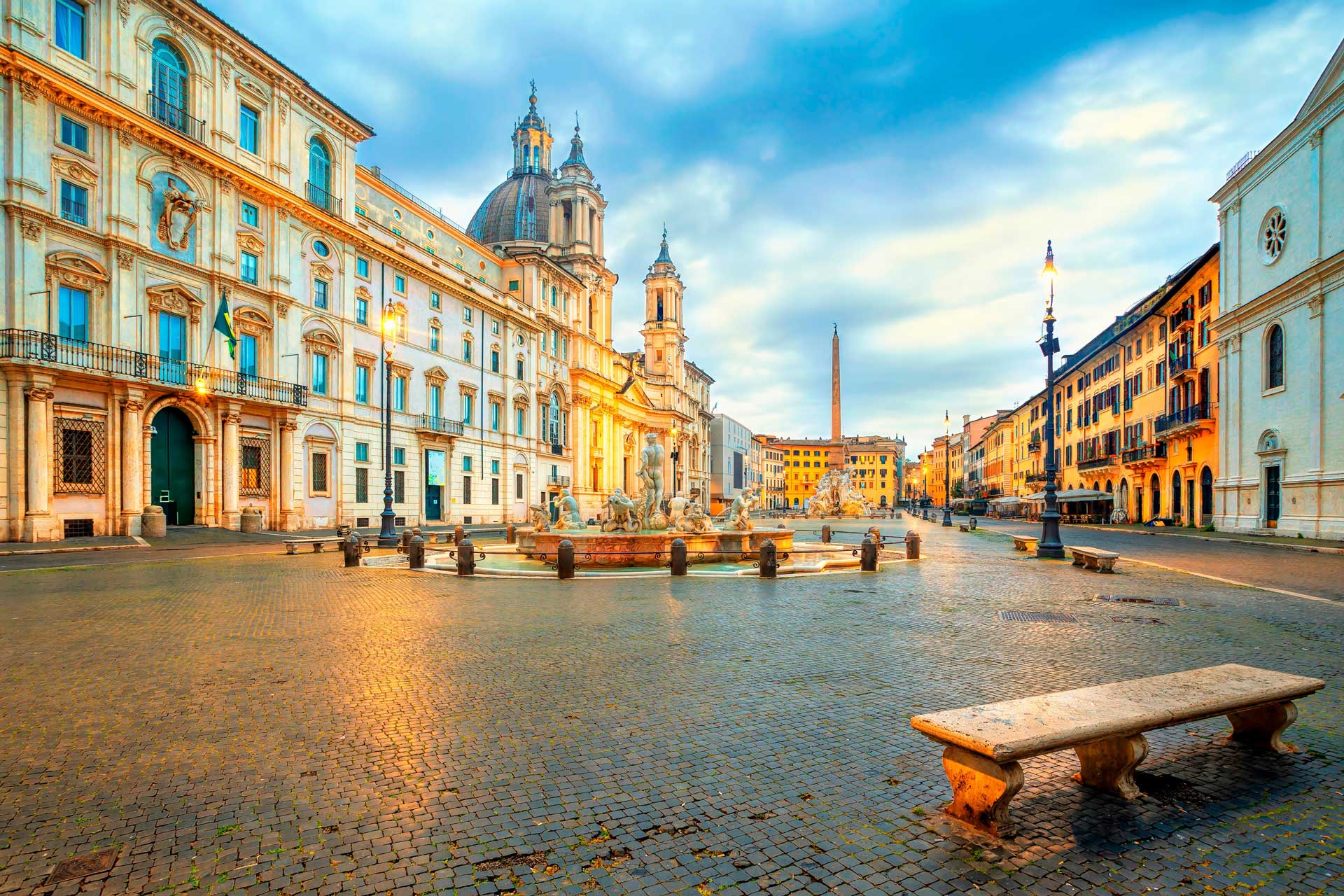
Procedure for obtaining citizenship: step by step
Now that we have looked at the main ways to get an Italian passport, let’s describe the general algorithm of actions. Below is a step-by-step instruction based on the example of standard naturalization through residence (for other categories the steps may differ, but the basic steps are similar):
- Preparatory stage – visit to Italy and choosing the basis.
First of all, decide on which basis you will apply for citizenship (see sections above). If it is naturalization, you need to obtain a D-entry visa and come to Italy. The basis for a long-term visa can be work, study, investment, family reunification, etc. Choose what suits you – for example, a study program, a contract with an employer or starting a business in Italy. - Obtaining a residence permit.
Once you arrive in Italy, you have 8 days to apply for a permesso di soggiorno – a residence permit. The application is usually made through the local post office and then you will be called to the questura (police department) to be issued a plastic card. The residence permit is usually issued for 1-2 years depending on the basis, and must be renewed as it expires. During the 5 years of temporary residence, you will renew your status several times, keeping the grounds (working, studying, etc.). - Obtaining permanent residence.
After 5 years of continuous residence, you have the right to request a permanent residence permit (Carta di soggiorno). It is issued indefinitely, confirming your status as a long-term resident of the EU. To apply for it, you need to submit an application to the immigration service (through the Questura), enclosing documents about your accommodation (e.g., rental contract or ownership certificate) and paying a fee of ~€100. Obtaining a residence permit is an important milestone; you are then protected from having to renew every year and can live in Italy permanently. - Fulfilling the naturalization requirements.
In the remaining years (until you reach 10 years of service, if you are not in the privileged category), make sure that all conditions are met. Do not leave the country for long periods of time (no more than 6 months a year). Master the language – it is advisable to take courses in advance and pass the exam at level B1 or higher. Make sure that your income is official and sufficient, file annual tax returns. Observe the laws so that you do not get fines or even a criminal record. In other words, you need to build up a positive history of living in Italy over the years. - Collecting documents for citizenship.
When the required period of residence is over, start collecting the package of documents (see the list in the section on naturalization). Keep in mind that some certificates have a “shelf life” – for example, a certificate of no criminal record is valid for 6 months, so it is better to get it closer to the date of submission. All papers from your country must be provided with an apostille and translation. It often takes 2-3 months to collect the documents, take this into account. - Submitting your application.
Register on the online portal of the Ministry of Interior (Ministero dell’Interno) and fill in the electronic form for cittadinanza. Attach scanned copies of all documents. Pay the €250 state duty electronically and attach the receipt. Once the application has been submitted, you will be assigned a practice number. Usually within a few weeks you will receive a call from the prefecture to hand in your originals. On the appointed day, visit the prefecture with the originals of all documents – they will check them, take the copies and return the originals. Be sure to bring a receipt for the fee and a da bollo €16 stamp – they will also be required. - Waiting for a decision.
Your case is now officially pending. You can check the status online by number. If necessary, the prefecture may request additional documents or information – do not ignore such requests. According to the law, a decision must be made no later than 2 years from the date of filing (or 3 years in complex cases). In fact, many people wait up to 3-4 years. This time you will just have to wait patiently, updating the certificates, if necessary, if they expire (for example, to resubmit a fresh certificate of criminal record, if they request it). - Obtaining citizenship and passport.
If the decision is positive, you will be notified by an official letter or through the portal. Then you are invited to take the oath of office in the municipality where you live. The procedure is formal: you repeat the oath of allegiance to the Republic and sign the corresponding act. A certificate of citizenship (decree) is then issued. With this decree and your identification code, you can apply for an internal ID card and a passport. The passport is issued at the Questura: you need to fill in the form, attach 2 photos, a receipt for the fee of €42.50 and buy an administrative stamp of €73.50. Usually in 1-2 weeks the passport will be ready and you can receive it in person or by mail (for a surcharge of ~€9).
At first glance, this is a long way to go. However, thousands of foreigners successfully pass it every year and become new citizens of the country. According to the feedback from immigrants who have already obtained the status, with professional support it is much easier to go through all the stages without unnecessary delays. The main thing is to move systematically towards the goal and comply with the law at every stage.
Learn more about current EU citizenship programs
Fill out a simple form and our experts will give you free advice at your convenient time
Basic requirements for applicants for citizenship
Italian law clearly regulates who can become a citizen. Let us summarize the main requirements for obtaining Italian citizenship:
- Age. The applicant must be of legal age (18+) at the time of application. Children are usually granted status with their parents, but they can only apply independently from the age of 18.
- Statutory Grounds. There must be one of the stipulated grounds: Italian origin, marriage to a citizen, long-term residence (naturalization), investment (as a pathway to naturalization) or repatriation/reunification.
- Residence in the country. Most applicants require a minimum of 10 years of legal residence in Italy (residence permit/permanent residence).
- No criminal record. The applicant must have a clean criminal record. Any serious crimes can permanently close the road to citizenship. The absence of serious administrative offenses and deportations is also taken into account.
- Income and self-sufficiency. It is necessary to prove a stable income in Italy, sufficient to support yourself and your family. The minimum level is usually at least €8,264 per year (a threshold comparable to a social pension). If the application involves a family, the threshold increases: +€3,098 for the spouse and +€516 for each child. Income is confirmed by certificates of earnings, tax returns for the last 3 years. It is also necessary to provide documents on the availability of housing – either rented or owned (for example, rental agreement, certificate of ownership).
- Knowledge of Italian language. Not lower than B1 according to CEFR – this is an intermediate level that allows you to freely explain yourself on everyday topics. The requirement applies to naturalization and citizenship by marriage. Confirmed by a certificate or diploma. Exceptions are made only for persons with a proven inability to learn the language (disabled, elderly – in 2026 these exceptions are expected to be added to the law).
- Loyalty to the State. The applicant must not pose a threat to national security. Possible extremist ties, terrorist activities, etc. are checked. At the final stage, all new citizens take an oath, pledging to abide by the laws of Italy.
- Proper execution of documents. A formality, but an important one. All documents must be in order: translations, apostilles, expiration dates of certificates. The package must be complete. An incomplete or incorrectly executed package is grounds for refusal.
If you meet these criteria, the probability of a positive decision is very high. If you do not fulfill at least one of the conditions, you will have to eliminate it first (for example, wait until the required period of residence is over, or improve your language skills). Regardless of the grounds, an applicant for Italian citizenship is obliged to respect the laws of the country and integrate into society – this unspoken criterion is always present.
💡Tip! Make sure all requirements are met before submitting. If necessary, it is better to postpone the application than to get a rejection and lose time and money. If in doubt, consult with an immigration lawyer.
Terms and cost of obtaining citizenship
In general, the period of obtaining an Italian passport (from zero to the issuance of the document) exceeds 10 years. Thus, for naturalization you need to live for 10 years, and then wait another 2-4 years for the application to be processed. The total comes out to be about 12-14 years. For spouses the terms are shorter: for example, 2-3 years of marriage and about 2-3 years of consideration – total ~5 years. Italian descendants can take about 3-5 years (3 years of residence + 1-2 years of consideration). In any case, you can’t get a passport instantly – even “privileged” categories wait several years.
Below is a comparative table summarizing the main ways of obtaining Italian citizenship by key parameters: the minimum time required, basic requirements and monetary costs.
| Method of obtaining | Minimum period (accommodation + consideration) | Basic requirements | Cost (state fees, investments) |
|---|---|---|---|
| Naturalization (by residence) | 10 years of residency + up to 2-4 years for application processing. | Residence permit in Italy for 10 years; permanent income ≥ €8,264/year; language level B1; no criminal record; integration into society. | €250 state fee for consideration; ~€70-80 for each extension of residence permit; costs of translations, apostille of documents. |
| Through marriage (to an Italian citizen) | 2 years of residence in Italy (or 3 years of marriage abroad) + ~2-3 years of consideration. | Valid marriage to an Italian citizen, not dissolved at the time of receipt; cohabitation for the required period of time; B1 language required; no criminal record. | €250 fee + €16 stamp; translation costs for marriage documents, certificates; in case of birth of a child the terms are halved. |
| By ancestry (Italian ancestry) | Option 1: 0 years (if eligibility is automatic, through consulate) + ~2-4 years waiting for consular verification Option 2: 3 years of residence in Italy (if descendant is naturalized) + ~1-2 years of consideration. | Direct ancestor (parent/grandparent/great-grandparent) is an Italian citizen; prove parentage and no renunciation of citizenship through lineage; if naturalized, live ≥ 183 days per year in Italy for three years; language B1 (for naturalization). | €300 consular fee (upon confirmation of citizenship); or €250 fee (upon naturalization) + costs of collecting archival documents, translations, apostilles. |
| For investment (through a "golden visa") | 0 years (residence permit is issued immediately upon investment) + 10 years of residence before applying for citizenship + 2-4 years of consideration. | Investment of €250,000 or more in an established project; maintain the investment for ≥ 2 years; reside in Italy for ≥ 10 years as a resident; meet naturalization conditions (language, income, etc.). | Investment €250,000 - €2,000,000 (depending on option); €116 D visa; €76-100 residence permit issue; €250 citizenship application fee; insurance and other related costs. |
| Repatriation (reinstatement/special cases) | 1 year of residency (for former citizens) or individually (for descendants from former territories); review usually up to 1 year. | For ex-citizens: residence in Italy for 12 months and declaration of desire to restore citizenship. For descendants of Italian communities abroad: proof of ancestry, language skills and cultural links. For employees: 5 years of service to Italy. | €250 standard fee (as for naturalization) or exemption (for some categories); costs of supporting documents (archival certificates, certificates). |
Notes! The table shows the minimum possible timeframe – in practice the process may take longer, especially the processing of applications at the Ministry of Internal Affairs. Also, the financial costs are not including intermediary services, language training, travel and accommodation in Italy. The cost of obtaining Italian citizenship in monetary terms is relatively low (a few hundred euros of state fees), the main “price” is the time spent on waiting and meeting the requirements.
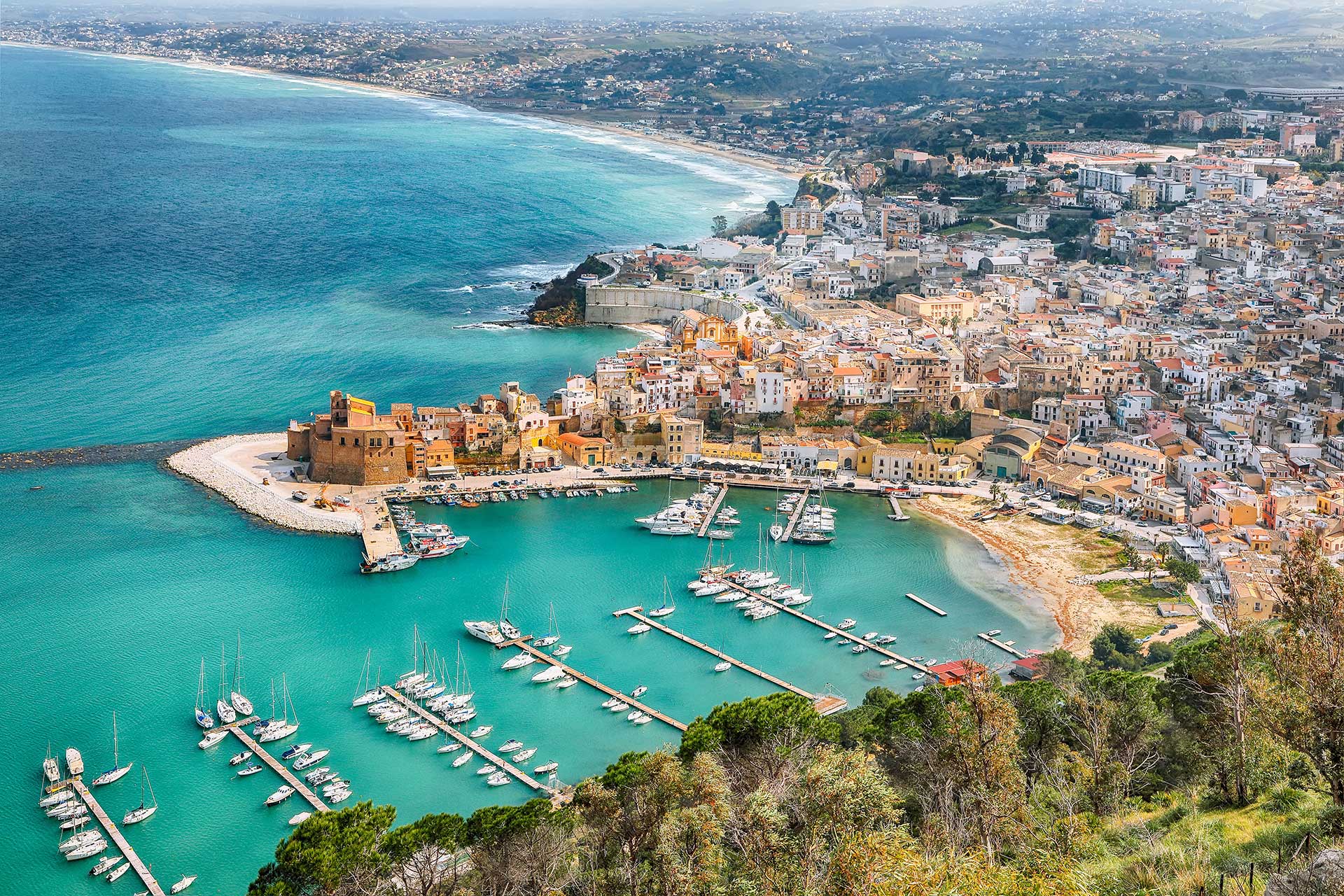
Dual citizenship in Italy: whether it is allowed?
The short answer is yes, dual citizenship is allowed in Italy. The country’s legislation does not require new citizens to renounce their previous citizenship and does not limit the possession of a second passport in any way. Italy itself has not concluded special agreements on dual citizenship with other states (such treaties are rare in the world), so in fact we are talking about a second citizenship. This means that a person in each country is considered only as its own citizen, but has two sets of documents and can use them at will.
It is important to realize that the authorization for dual citizenship depends on the second state too. Therefore, it is worth clarifying the policy of your country before registration. But from the point of view of Italy, there are no obstacles. Having obtained Italian citizenship, you are free to keep your previous passport (if it is not prohibited by the laws of that country) and become a full-fledged citizen of two (or more) states. Many immigrants do exactly that: for example, Americans, Canadians, Ukrainians, and Belarusians can have an Italian passport as a second passport without losing the first one.
Obtaining Italian citizenship is a complex but feasible project. Italian law provides transparent and legal ways to become a citizen, although it requires patience and compliance with many conditions. An Italian passport offers enormous advantages – freedom of travel, the right to live and work anywhere in the EU, social protection and confidence in the future. It is not surprising that the number of people wishing to obtain it does not become less every year. Waiting times, bureaucracy – all this can be endured if the ultimate goal is worth it. And in this case, the end really justifies the means, because Italian (and at the same time European) passport opens doors to almost all countries of the world.
Start your path to citizenship with detailed planning. Explore your options – you may already be eligible for a second citizenship and didn’t know it. If the process seems confusing, get professionals involved. Mycitizenagency’s immigration lawyers and citizenship consultants have a wealth of experience and have successfully helped many families obtain the coveted passport, according to testimonials. With their help, you will avoid mistakes in documents, reduce the risks of rejection and save time.
Frequently Asked Questions about Italian Citizenship
We have compiled answers to the most common questions about obtaining Italian citizenship. If you did not find the information you were looking for or want to learn more about the requirements, timelines, and benefits of an Italian passport, contact us for a free consultation.
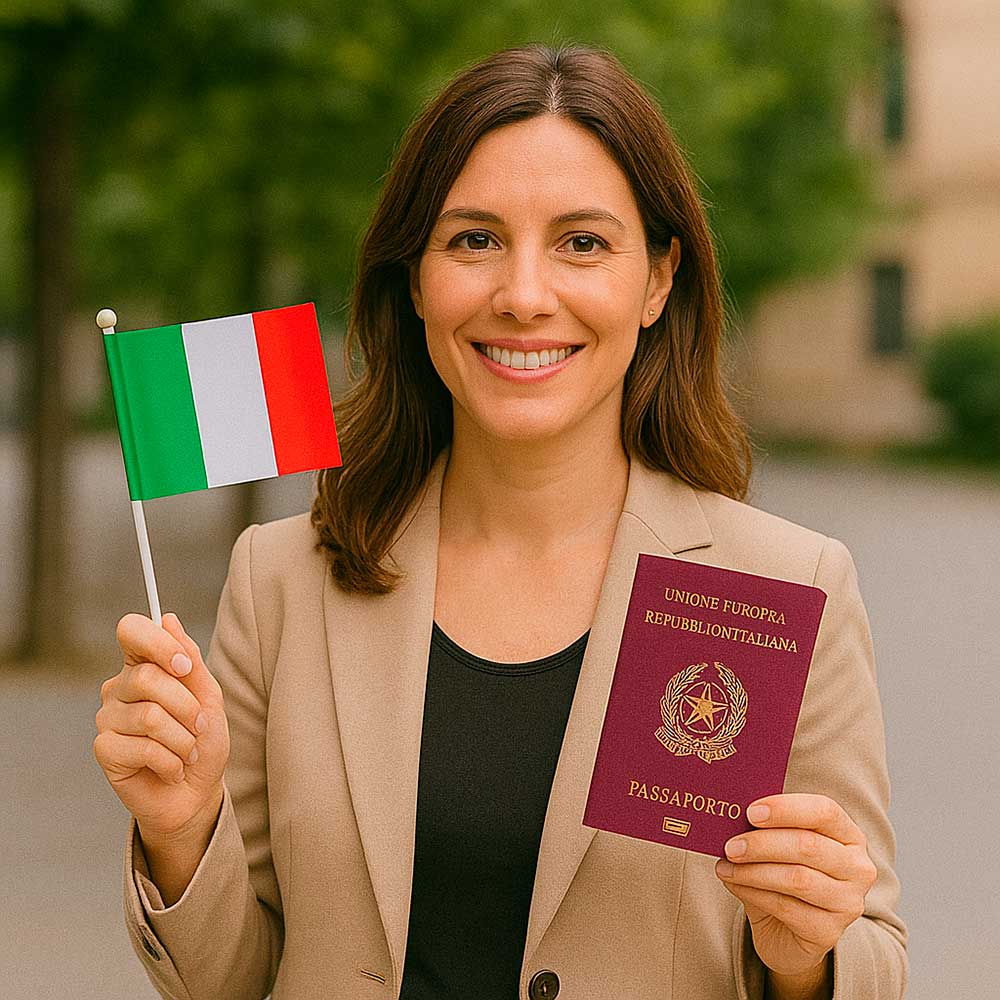
Yes, but extremely rare. Italy does not revoke citizenship for political reasons, but loss is possible if a citizen voluntarily serves in the armed forces of a state at war with Italy or takes foreign citizenship under certain circumstances before 1992. Also, Italians who voluntarily renounce citizenship (e.g., at the request of another country) lose it officially. After 1992, dual citizenship is allowed, so the loss happens only upon the citizen’s own declaration.
No, a study residence permit (permesso di soggiorno per motivi di studio) does not count towards the period of residence for citizenship application. In order for the period of residence to start counting, you need to change the basis to work, family or other “long-term” (residenza stabile). Only then will the years required (usually 10) to apply for naturalization begin to count down.
Yes, and this is an informal but important condition. Although formally minimum income and the fact of residence are the main criteria, the authorities take into account the history of filing tax returns. Lack of reporting can be considered as a lack of integration. To apply for citizenship, it is necessary to show a tax return (CU, Modello 730 or UNICO) for at least the last 3 years.
No. As of 2018, proof of language proficiency of at least B1 level is mandatory. This includes both the oral and written part. Certificates are only accepted from accredited centers (e.g., CELI, CILS, PLIDA, or Roma Tre University). Oral knowledge without a written part is not sufficient, except in special cases (disability, etc.).
Yes, potentially. When you move between communes, you are obliged to register your new place of residence. If there are gaps in registration (e.g. late registration), this can lead to a break in your length of residence. Italian authorities require “continuous residency”, so it is important to avoid even formal “gaps” in registration between moves.
Yes, you may qualify for Italian citizenship by descent (jure sanguinis) through great-grandparents, provided the Italian line of citizenship was never broken — meaning no ancestor renounced their Italian nationality before passing it on to the next generation, and all births were properly registered.
A “1948 case” refers to Italian citizenship by descent claims through a female ancestor, where the child was born before January 1, 1948. At that time, Italian law did not allow women to pass citizenship to children. Today, such applicants must go through the Italian courts to have citizenship recognized.

